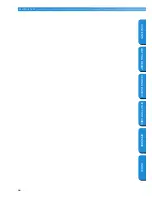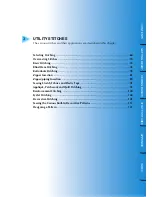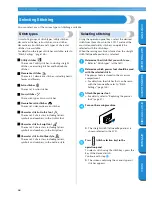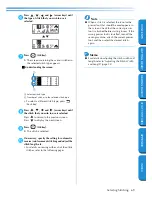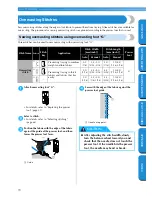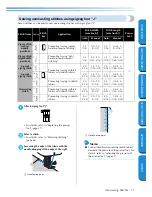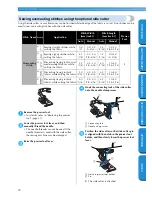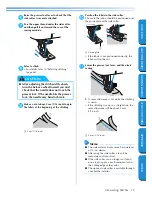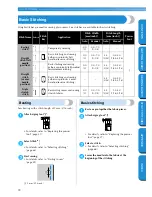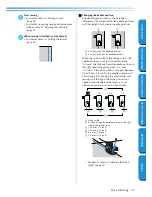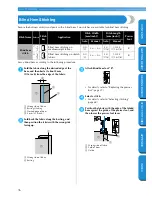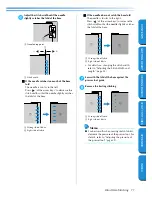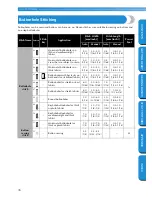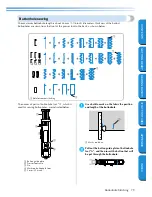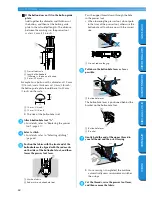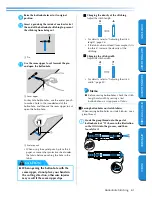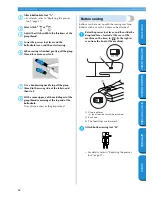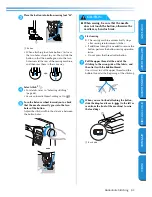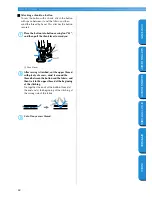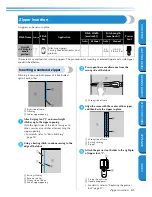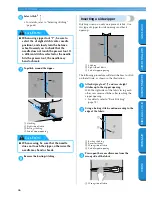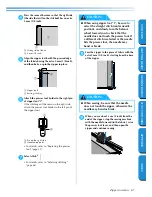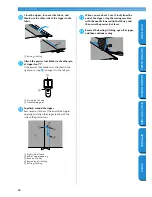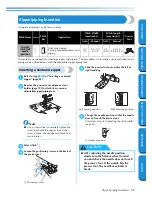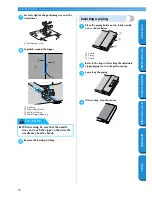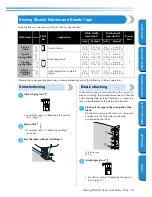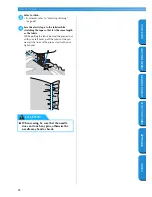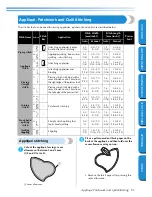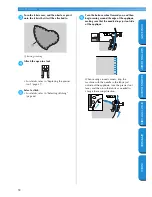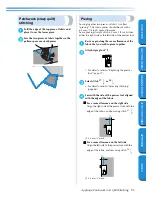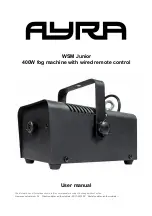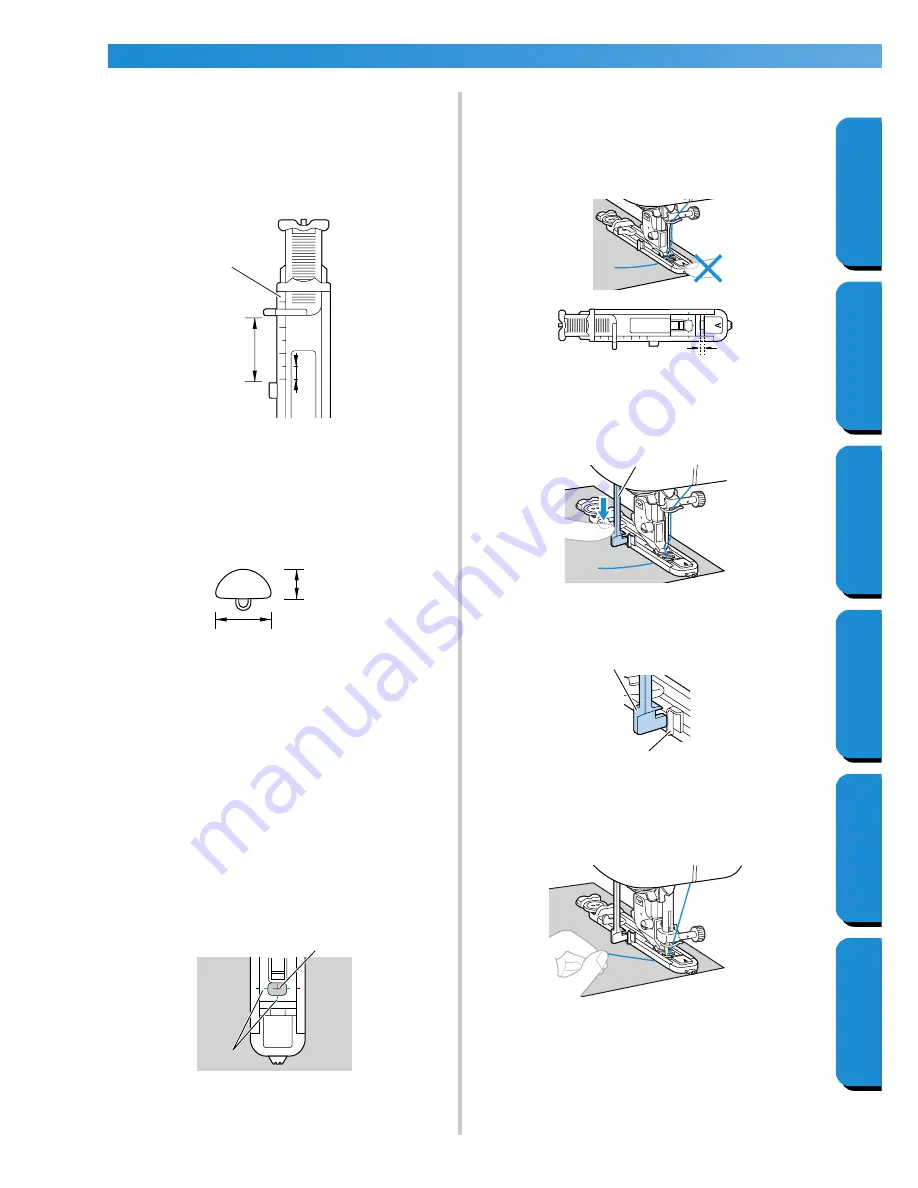
UTILITY STITCHES
——————————————————————————————————————————————————
80
GETTING READ
Y
CONTENTS
SEWING BASICS
U
T
IL
IT
Y
S
T
ITCHES
APPENDIX
INDEX
■
If the button does not fit in the button guide
plate
Add together the diameter and thickness of
the button, and then set the button guide
plate to the calculated length. (The distance
between the markings on the presser foot
scale is 5 mm (3/16 inch).)
1
Presser foot scale
2
Length of buttonhole
(Di thickness of button)
3
5 mm (3/16 inch)
Example: For a button with a diameter of 15 mm
(9/16 inch) and a thickness of 10 mm (3/8 inch),
the button guide plate should be set to 25 mm
(1 inch) on the scale.
1
10 mm (3/8 inch)
2
15 mm (9/16 inch)
X
The size of the buttonhole is set.
3
Attach buttonhole foot “A”.
• For details, refer to “Replacing the presser
foot” (page 37).
4
Select a stitch.
• For details, refer to “Selecting stitching”
(page 68).
5
Position the fabric with the front end of the
buttonhole mark aligned with the red marks
on the sides of the buttonhole foot, and then
lower the presser foot lever.
1
Mark on fabric
2
Red marks on buttonhole foot
Pass the upper thread down through the hole
in the presser foot.
• When lowering the presser foot, do not push
in the front of the presser foot, otherwise the
buttonhole will not be sewn with the correct
size.
1
Do not reduce the gap.
6
Pull down the buttonhole lever as far as
possible.
1
Buttonhole lever
The buttonhole lever is positioned behind the
bracket on the buttonhole foot.
1
Buttonhole lever
2
Bracket
7
Gently hold the end of the upper thread in
your left hand, and then start sewing.
X
Once sewing is completed, the machine
automatically sews reinforcement stitches,
then stops
8
Cut the threads, raise the presser foot lever,
and then remove the fabric.
1
3
2
1
2
A
1
2
1
1
1
2

